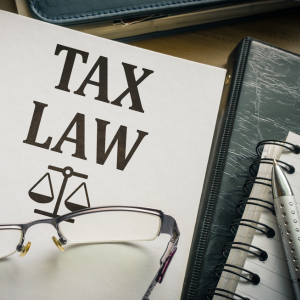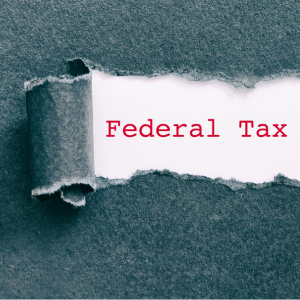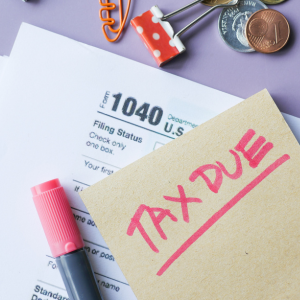
Understanding Capital Gains Tax When Selling Property in Virginia
When you sell a house in Virginia, you need to know how the capital gains tax might affect the deal. If you sell your home for more than you paid for it, you’ll have to pay this tax. The difference is your capital gain.
In Virginia, just like in other states, this gain can be taxed by the IRS and possibly the state. Fortunately, many homeowners qualify for the primary residence exclusion, which allows individuals to exclude up to $250,000—and married couples filing jointly up to $500,000—if they’ve lived in the home for at least two of the last five years.
This exception can cut or even get rid of any taxes that are due on the sale. But don’t forget to think about how home improvements or wear and tear could change your home’s cost base, which could change your taxable gain.
To avoid surprises, speak with a tax advisor who understands Virginia’s specific tax rules to stay on track and comply with all legal obligations during your home sale.
Essential Steps to Calculate Capital Gains on Virginia Properties
When you’re preparing to sell a home in Virginia, knowing how to calculate capital gains is key to anticipating any taxes owed. Start with your property’s purchase price, adding any costs like closing fees or value-adding improvements.
Next, determine the total selling price, including all proceeds before deductions. The difference between the adjusted purchase price and the net sale amount is your capital gain.
Check to see if you can get any government exemptions, such as the IRS’s primary residence exclusion, which could lower the amount of tax you have to pay by a lot. You may also need to be aware of the specifics in Virginia.
Understanding how these factors play into the final number will help you make informed financial decisions and accurately estimate your tax liability when you sell.
Key Tax Deductions for Home Sellers in Virginia
If you take advantage of certain tax breaks, selling your Virginia home can help you out. These things can really change how much tax you have to pay.
You may be able to deduct the cost of home improvements made while you owned the property, as these increase your cost basis and potentially reduce taxable gains. Don’t overlook real estate agent commissions, which are commonly deductible and often one of the largest selling expenses.
Legal fees, advertising costs, and fixes needed for the sale are some other things that can be deducted by the seller. For these tax deductions, make sure you keep thorough records and receipts.
You may be able to get extra tax breaks if you’ve used any part of your home for business or rental reasons. A tax expert who knows Virginia law can help you determine the best time to sell and maximize your benefits while still following all the rules.
Exemptions and Exclusions for Home Sellers Under Virginia Tax Law

Virginia homeowners have access to several exemptions and exclusions that can reduce or eliminate taxes from a home sale. The most notable is the federal capital gains exclusion, which Virginia also honors.
If you’ve lived in the home for two out of the five years before the sale, you can exclude up to $250,000 of capital gains if single, or $500,000 if married filing jointly. There may also be state-specific exclusions in cases such as selling due to health issues or sudden life changes.
Virginia doesn’t have a separate capital gains tax; it follows federal guidelines, which often allows homeowners to avoid paying tax on sale profits. Knowing these rules inside and out will help you maximize your benefits and avoid costly mistakes.
Navigating Real Estate Transfer Taxes in Virginia
If buyers in Virginia aren’t ready, transfer taxes can catch them off guard. A grantor’s tax is levied by the state. It is generally equal to $0.50 for every $500 of the home’s sale price or assessed value, whichever is higher.
On top of that, counties may impose recordation taxes, which differ depending on your location. Sellers should research their county’s rates to understand what will be owed at closing.
Based on the type of deal, there may also be local credits or exemptions. A real estate lawyer or tax expert can help you understand these rules and make sure you follow all the laws when you move ownership.
How to Minimize Taxes When Selling Your Virginia Home
If you want to lower your taxes when you sell your Virginia home, you need to plan ahead. The federal capital gains deduction is the most important tool. It lets homeowners who qualify not pay taxes on up to $250,000 in profit (or $500,000 for married couples filing jointly).
Remember to keep track of the money you spend on home improvements because they can be added to your cost base, which will lower your gains. You may also have to pay more or less tax if you time your sale around big events in your life or changes in your income.
A tax advisor familiar with Virginia law can recommend personalized strategies to help you stay compliant and maximize your return. If you’re considering selling your property, The Cash Offer Company buys houses for cash in any condition—contact us today to see how we can help turn your home into a hassle-free payout.
Legal Considerations for Home Sales and Tax Implications in Virginia
Virginia homeowners must understand the legal and tax implications of selling real estate. If your property has appreciated since you bought it, you may be subject to capital gains tax.
The IRS allows for an exclusion on primary residences—up to $250,000 for individuals or $500,000 for married couples filing jointly—if residency conditions are met. In addition, be aware of real estate transfer taxes and disclosure laws, which vary by location.
Hiring a knowledgeable real estate attorney or tax professional ensures your sale is handled properly and that you’re fully informed about your responsibilities. Protecting your legal and financial interests should always be a top priority.
The Impact of Federal Taxes on Selling a Home in Virginia

It’s important to know how federal taxes, especially capital gains tax, may affect you when you sell your home in Virginia. If you’ve stayed in the home for two of the last five years, the IRS lets you deduct up to $250,000 if you’re filing as a single person or $500,000 if you’re married and filing jointly.
If you don’t meet the criteria, any profit from the sale may become taxable income, subject to capital gains tax rates based on your overall income. You should also consider the effect of depreciation recapture, especially if you’ve claimed deductions for business or rental use of part of your home.
Being aware of these federal tax factors helps ensure proper reporting, better financial planning, and full IRS compliance.
State vs Federal: Differentiating Tax Responsibilities When Selling a House
Virginia homeowners need to know the difference between their state and federal tax obligations when they sell their home. Capital gains tax is collected by the IRS at the federal level, but up to $250,000 or $500,000 may be exempt.
Virginia doesn’t have a separate capital gains tax but requires reporting any taxable gains on your state income tax return. While federal rules control overall taxability, Virginia may apply other charges, such as local assessments or transfer fees.
Getting advice from a tax professional who knows both state and federal guidelines can help you avoid surprises and take full advantage of available deductions.
Reporting Real Estate Sales on Your Tax Return: a Guide for Virginians
If you’re selling your home in Virginia, you need to make sure that your tax return correctly reports the sale. First, check to see if you can get the IRS capital gains exclusion based on where you live and how long you’ve owned the home.
If your gain exceeds the limit—$250,000 if single or $500,000 if married—you’ll need to report it on Schedule D of your federal tax return. Also, be mindful of any state-specific items like prorated property taxes or deductible selling expenses such as agent commissions and legal fees.
Some transactions will also require filing Form 1099-S, which documents the gross proceeds from the sale. Accurate documentation is critical for staying compliant with tax laws in both Virginia and federally.
Assessing Property Value and Its Effect on Taxes in a Sale
Your property’s value plays a big role in how much tax you may owe when selling in Virginia. The fair market value at the time of sale helps calculate your capital gains by subtracting the original purchase price and any qualifying home improvements.
If your home has appreciated, you could still qualify for federal exclusions—up to $250,000 or $500,000 depending on filing status—ssuming you meet the residence requirements. In some cases, homeowners choose to sell only a portion of their property, such as half of the house. When this happens, the gain is typically prorated based on the share sold, and exclusions may still apply proportionally if other conditions are met.
However, factors like local tax assessment changes or zoning issues can affect this calculation. That’s why it’s helpful to speak with a tax advisor who can assist in navigating both state and federal tax codes and ensuring a precise gain estimate.
Timing Your Home Sale: How It Affects Tax Obligations in Virginia

When you sell your home in Virginia, timing matters—especially when it comes to qualifying for the capital gains tax exclusion. To take advantage of the federal exclusion, you must have used the property as your primary residence for two of the past five years.
Meeting this requirement can reduce or eliminate capital gains taxes altogether. Conversely, selling too soon might disqualify you and increase your tax liability. Also, watch out for local tax adjustments, such as prorated property taxes or shifts in county rates.
Strategic timing not only helps you minimize your tax burden but also ensures financial predictability and smoother closing costs.
Understanding Depreciation Recapture for Rental Property Sales in Virginia
Selling a rental property in Virginia comes with the added complication of depreciation recapture. This is when the IRS taxes the portion of your gain that was previously deducted as depreciation—typically at a 25% rate.
For example, if you deducted $50,000 in depreciation over the years, that amount is taxed separately from standard capital gains. This can increase your tax bill if you don’t plan for it properly.
It’s critical to maintain clear records of all depreciation claimed over time. A tax advisor with expertise in Virginia real estate can help ensure that calculations are accurate and all tax obligations are met.
The Role of 1031 Exchanges in Deferring Taxes on Real Estate Transactions
A 1031 exchange, also called a like-kind exchange, allows sellers in Virginia to defer paying capital gains taxes by reinvesting proceeds into another qualifying property. This tool is especially helpful for real estate investors aiming to grow or shift their portfolios.
Strict rules apply: you must identify a new property within 45 days and complete the purchase within 180 days. Following these deadlines allows you to postpone tax payments and use your full proceeds to invest.
Understanding how 1031 exchanges work can be a powerful strategy for maximizing gains and deferring tax liability—especially when guided by a real estate tax specialist.
What Taxes Do You Pay When Selling a House in Virginia?
Selling a home in Virginia comes with a variety of tax considerations. Most notably, there’s the federal capital gains tax—unless you qualify for exclusions—and Virginia’s grantor’s tax, usually calculated at $0.50 per $500 of the sale price or assessed value.
While Virginia doesn’t have its own capital gains tax, it does require you to report gains on your state return if they’re taxable at the federal level. Also, some local governments may charge additional transfer fees.
To stay ahead, keep organized records and seek advice from a tax professional who can help you handle the federal and Virginia-specific requirements and maximize your post-sale profit.
What Taxes Do I Pay When I Sell a Home?
If you’re selling a home in Virginia, expect to face both federal and state-related taxes. Federally, capital gains tax applies if your profit exceeds $250,000 (single) or $500,000 (married filing jointly)—though many sellers qualify for exclusions.
Virginia also imposes a grantor’s tax, typically $0.50 per $500 of the sale price or appraised value. Localities may tack on their own fees as well, which can affect your net proceeds.
When selling your home, understanding all applicable taxes—from federal capital gains to state and local transaction fees—can lead to better financial outcomes and smoother planning. Always consult a tax professional to ensure accurate calculations and full compliance. If you’re looking to sell, we buy houses in Richmond and can help make the process fast and hassle-free.
Helpful Virginia Blog Posts
- Sell your House As-Is in Virginia
- Sell a House without Realtor
- Selling a House in Virginia with Probate
- How to Sell a House With Code Violations in Virginia
- How to Sell a Rental Property in Virginia (With or Without Tenants)
- Should I Sell My House Fast or Wait?
- Sell your Virginia House as-is
- Behind on Mortgage Payments in Virginia?
- Selling an Inherited House in VA
- Stress-Free Cash Home Sales in Virginia
- Comprehensive Guide To Tax Implications Of Selling Your Home In Virginia
- Optimal Season For Selling Your Home In Virginia’s Real Estate Market
- Effective Strategies For Selling A Virginia Home With Title Complications
- Understanding Tenant Property Damage In Virginia
- Understanding The Costs Of Replumbing Your Virginia Home

| LEVIED | TAX RATE | THE COMMONWEALTH OF VIRGINIA | CAPITAL GAINS TAXED | ASSETS | DEDUCTIBLE EXPENSES |
| SAVINGS | WEALTH | TAX-PLANNING | TAX PLANNING | STOCKS | INVESTMENT PROPERTY |
| REAL ESTATE INVESTING | REAL ESTATE INVESTMENT | MORTGAGE INTEREST | MORTGAGES | INCOME TAXES | TAX RELIEF |
| THE INTERNAL REVENUE SERVICE (IRS) | TAX RATE | REALTORS | BUYER | FEDERAL ESTATE TAX | ENERGY |
| TAX INCENTIVES | TAX CREDITS | MONEY | INCENTIVES | CASH | RENTING |
| PRORATION | INSURANCE | FORECLOSED UPON | FORECLOSURE | FISCAL YEAR | TAX YEAR |
| PROPERTY DEED | DEED | LENDER | AMERICA | U.S. | |
| TAX BRACKET | REVENUE | REALTY | OPTIONS | NIIT | LIENS |
| INTEREST | INSPECTION | INFORMATION | FLAT FEE | FINANCIAL TRANSACTIONS | TAX IN VIRGINIA |
| INTERNAL REVENUE SERVICE | CAPITAL GAINS AND | TAXES WHEN SELLING A |
